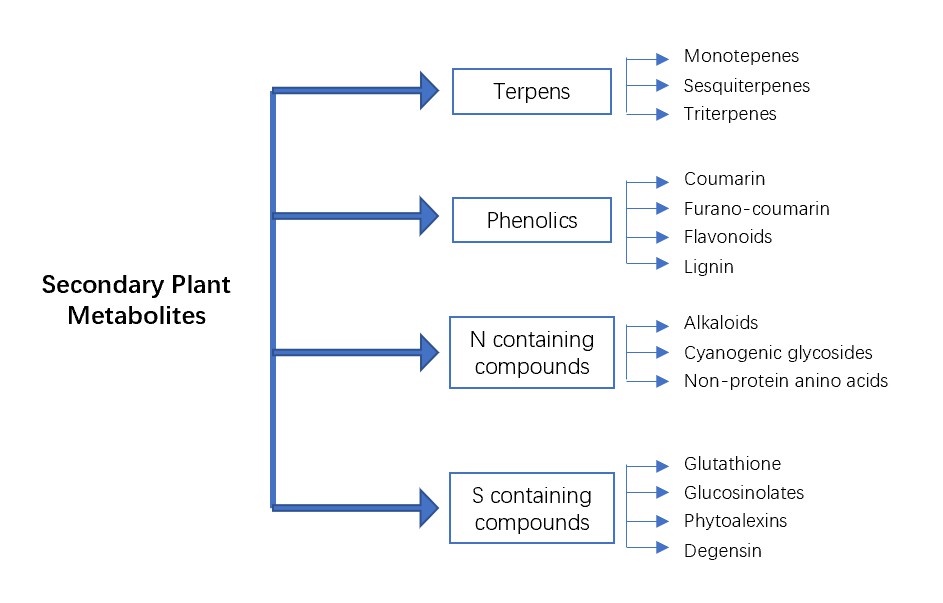Plant nematodes are important agricultural pests. Although nematode parasitism is rarely fatal, plant nematodes cause substantial yield losses by diverting nutrients, disrupting water transport, increasing susceptibility to secondary infections, and acting as vectors for viruses. To facilitate the development of novel nematode control strategies, plant nematologists have spent considerable time and effort studying the mechanisms of plant defense against plant nematodes. One defense mechanism is the production of metabolites with anti-nematode activity.
Lifeasible makes full use of our specialized libraries, selection strategies, and maturation techniques to analyze secondary metabolite control for plant nematodes. With advanced technology and experienced staff, we provide comprehensive services for global clients to support their research.
 Fig.1 Types of secondary metabolites.
Fig.1 Types of secondary metabolites.
Terpenoids, an umbrella term for terpenes and their derivatives are likely the most diverse class of plant secondary metabolites, with more than 60,000 compounds already identified. We offer analysis services for controlling nematodes by terpenoids derived from cotton, pepper, solanaceous, cereals, and others.
Fatty acids are common plant and animal constituents and usually exist in vivo as esters. We offer analysis services to control nematodes by fatty acids and derivatives.
We offer analysis services for the control of nematodes by organosulfur compounds, including α-terthienyl and asparagusic acid, which have properties of nematode-suppressive.
Lifeasible offers professional services covering secondary metabolites control for plant nematodes to meet your research needs. With years of experience in plant sciences, our advanced platforms can help our clients solve various difficulties and conduct research. If you are interested in our services or have any questions, please feel free to contact us or make an online inquiry.
Lifeasible has established a one-stop service platform for plants. In addition to obtaining customized solutions for plant genetic engineering, customers can also conduct follow-up analysis and research on plants through our analysis platform. The analytical services we provide include but are not limited to the following:
July 13, 2024